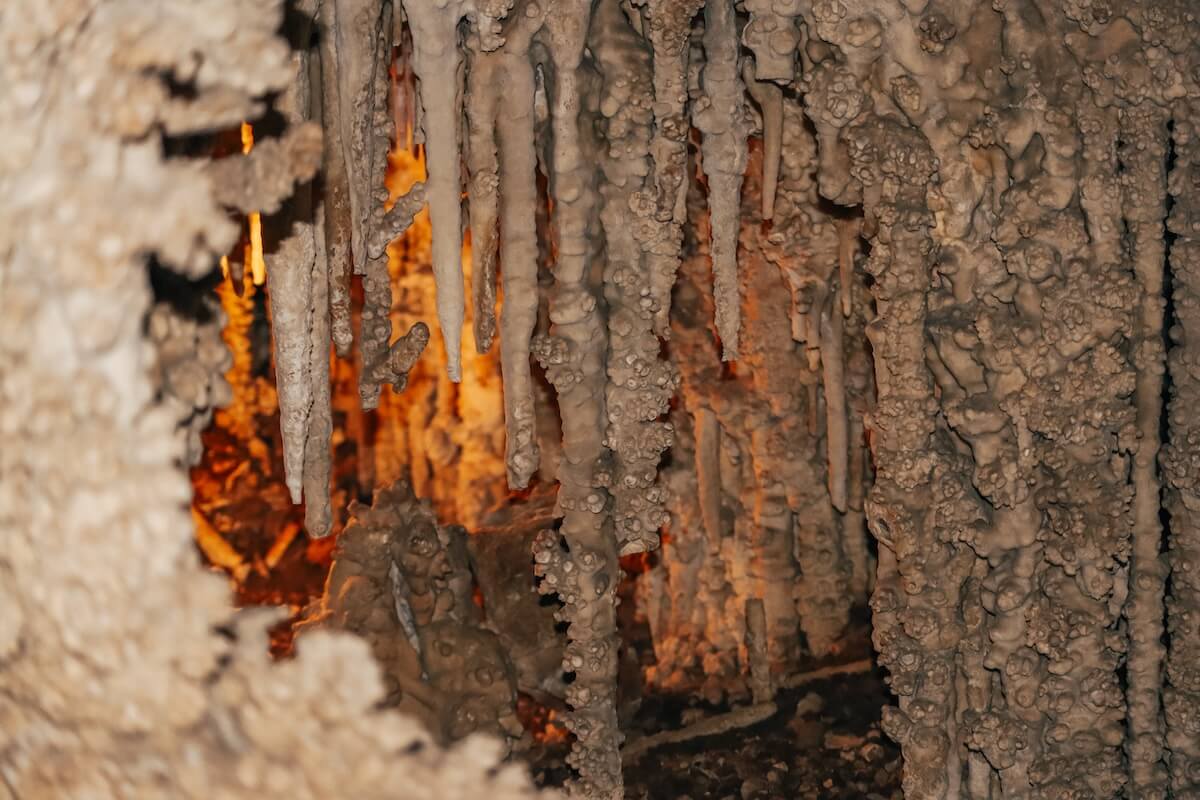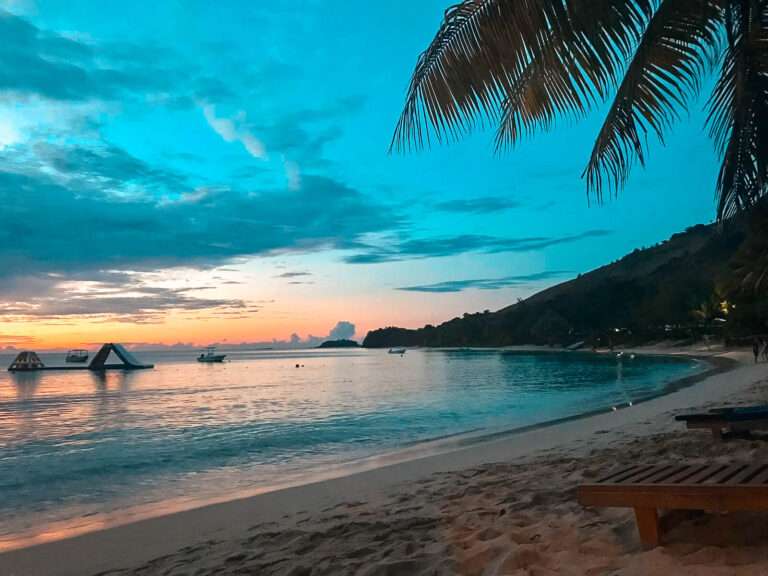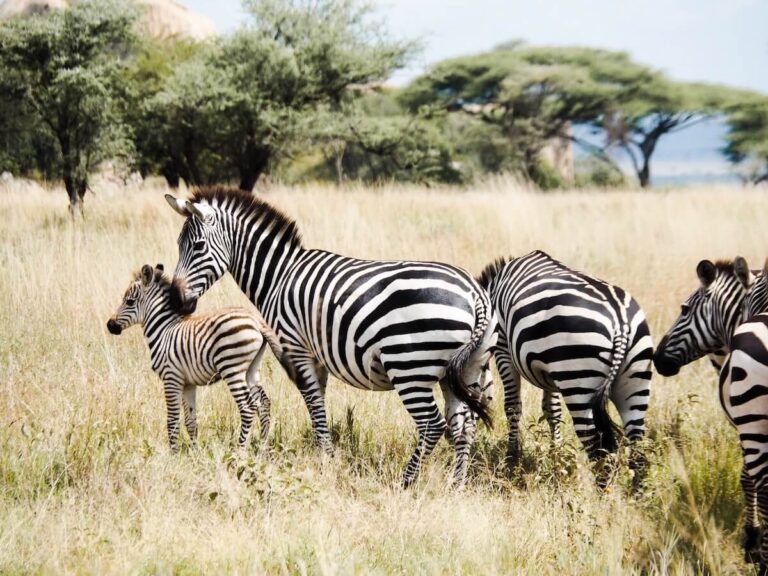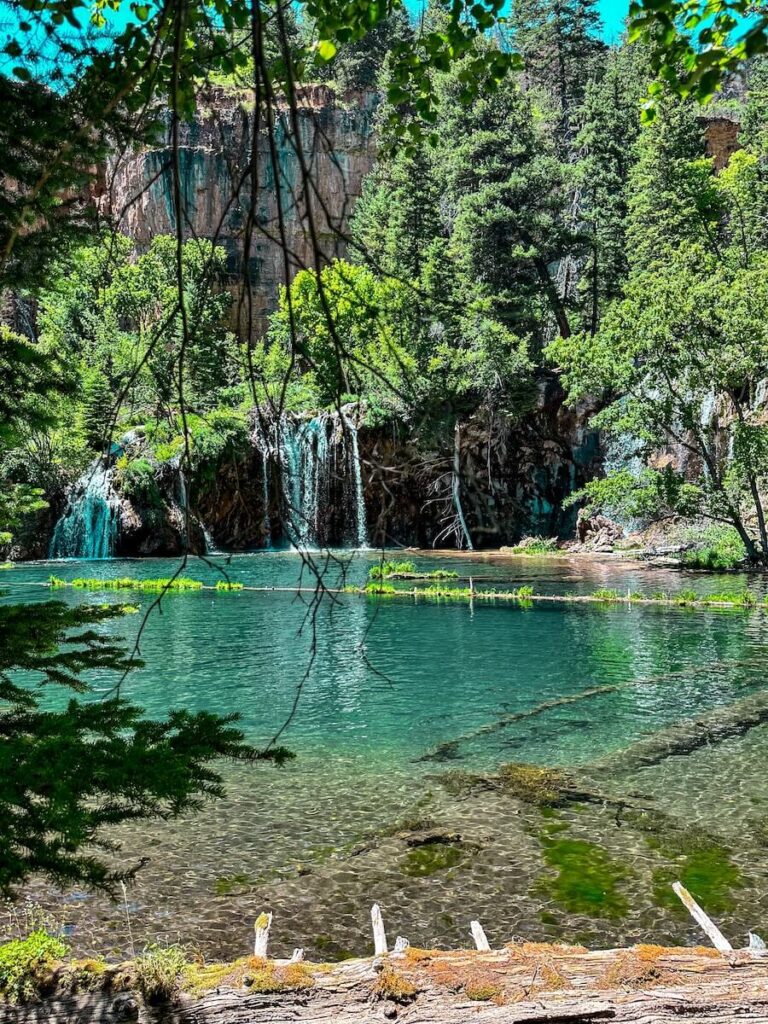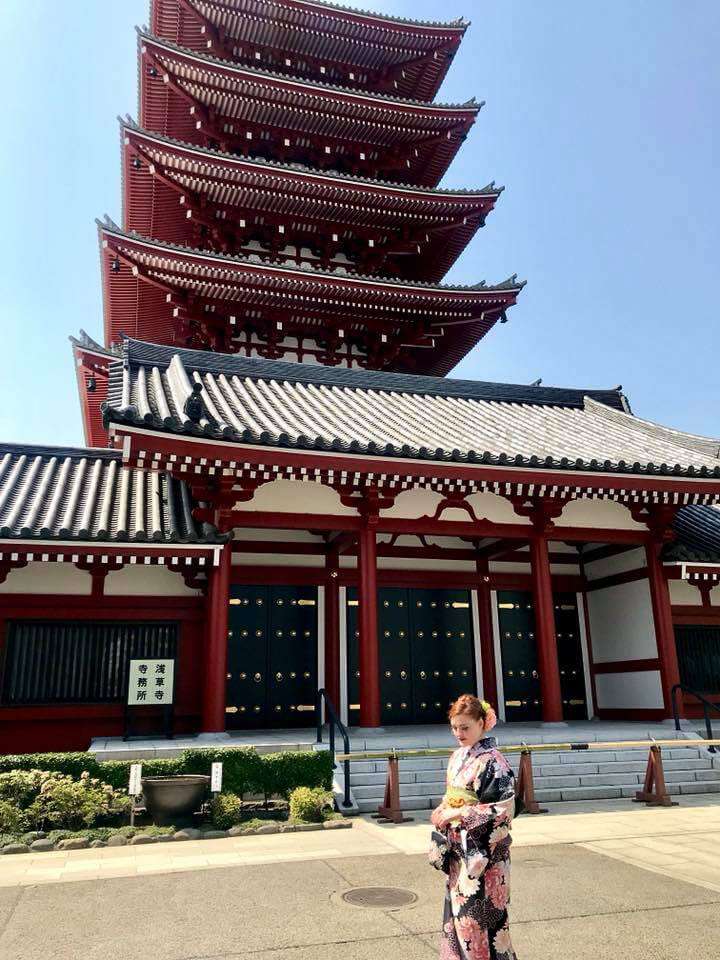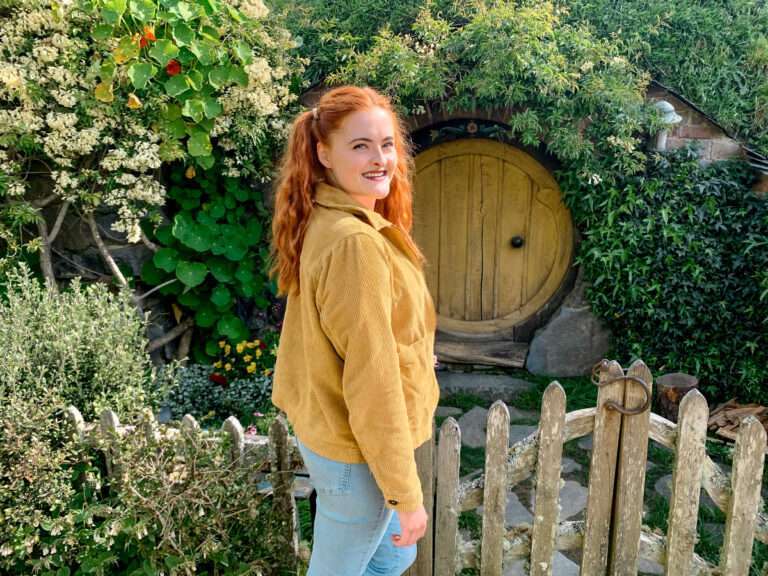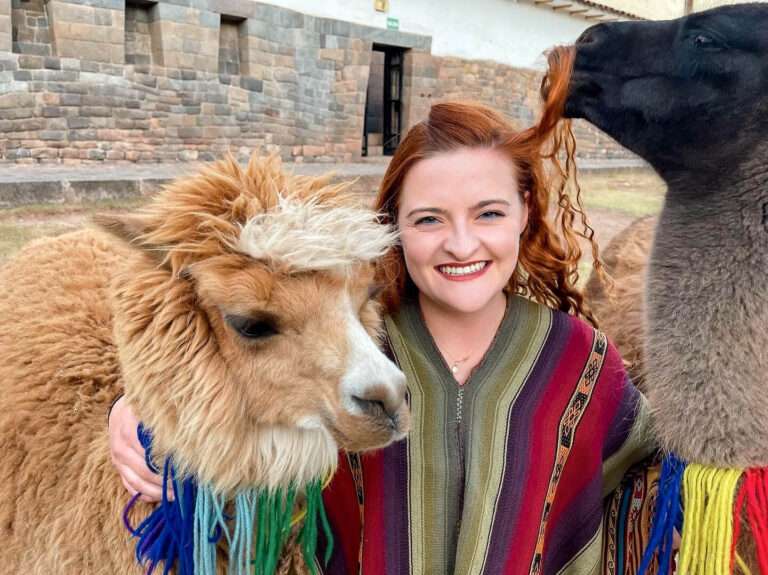Great Basin National Park Bucket List (Things to Do & Guide)
This website contains affiliate links from trusted partners. If you purchase through a link on this site, I may earn a commission at no extra cost to you. As an Amazon Associate, I earn from qualifying purchases. See my Privacy Policy and Disclosure for more information.
Tucked away in the remote wilderness of eastern Nevada, Great Basin National Park is one of the best-kept secrets in the National Park system.
It doesn’t get the crowds of Zion or the Instagram fame of Yosemite – but that’s exactly what makes it so magical.
Here, you’ll find otherworldly limestone caves, groves of ancient bristlecone pines, alpine lakes, and star-studded night skies that will blow your socks off.
As a full-time RVer who lives for off-the-radar adventures, I’ve explored every corner of this underrated park.
Whether you’re a hiker, stargazer, history nerd, or just want to soak up solitude, this Great Basin National Park bucket list will give you all the must-do experiences – without the fluff, guesswork, or crowds.
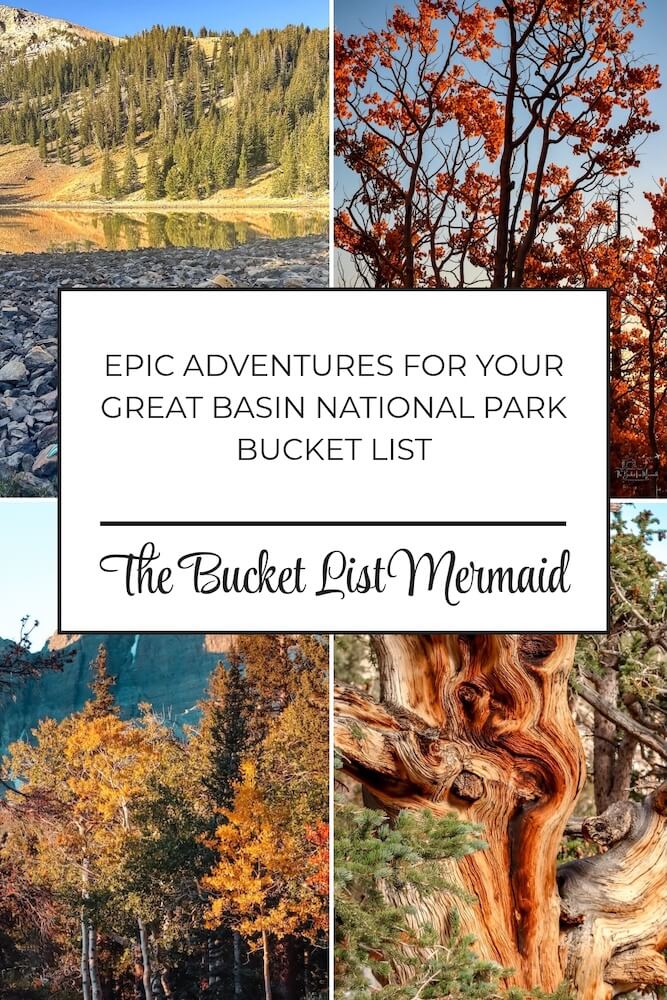
| Category | National Park |
| Who Should Add This to Their Bucket List? | Hidden gem seekers & nature enthusiasts |
| Best Time to Go | Fall |
| Traveling Difficulty | Moderate |
| Physical Difficulty | Depends on activity |
| Popularity Rating | 3/10 |
| Group Tour Required | No |
| Budget | $ |
| Wheelchair Accessible | Generally, yes |
| Favorite Place to Stay | Border Inn |
| Favorite Tour | Self Guided Audio Tour |
| Traveler’s Insurance | Get Quote with VisitorsCoverage |
If you need more information about the categories of this table, please check out the Bucket List Reviews guide.
Why Visit Great Basin National Park?
If you’ve ever dreamed of exploring a national park without bumper-to-bumper traffic and photobombing tour buses, Great Basin National Park is your kind of place.
This high-desert hideaway is one of the least visited national parks in the U.S. – and that’s not a bad thing. In fact, it’s kind of amazing.
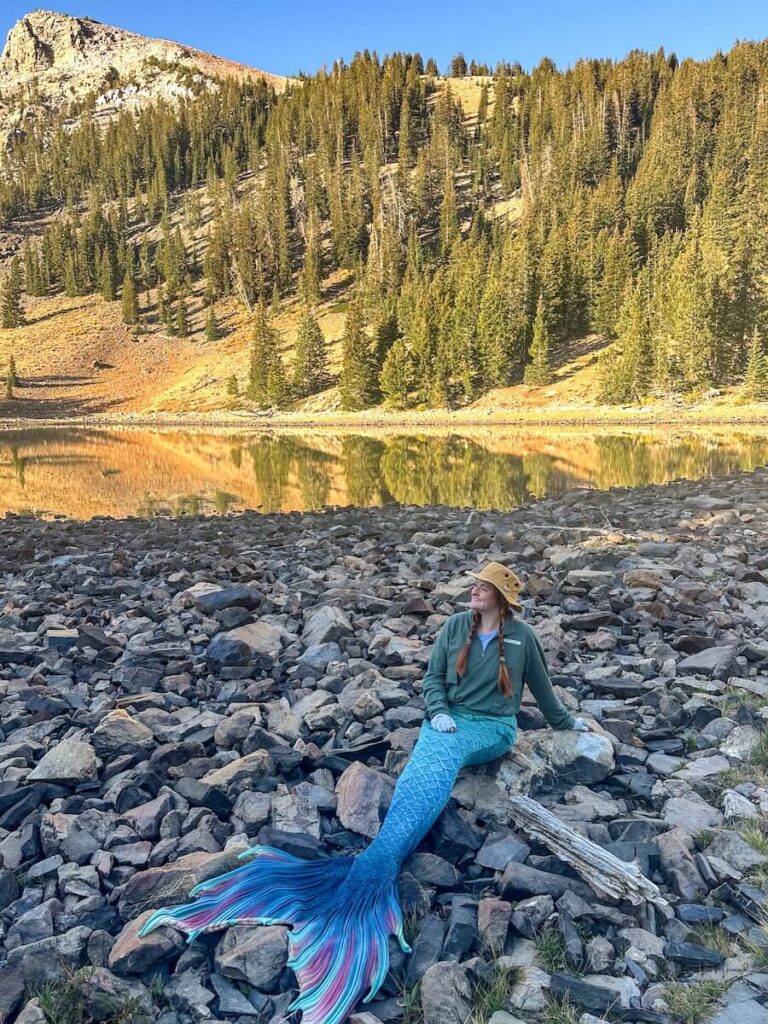
When to Go to Great Basin National Park
- Summer (June–September): Best for hiking, camping, cave tours, and clear night skies. Most trails and roads are fully accessible.
- Fall (September–October): Gorgeous fall colors + fewer visitors. Cave tours still running.
- Spring (April–May): Some snow at higher elevations; lower trails and cave tours begin to open up.
- Winter (November-April): Solitude, snowshoeing, and limited access. Not ideal for first-timers, but great if you like peace and powder.
Read More – Fall Bucket List | Winter Bucket List | Summer Bucket List
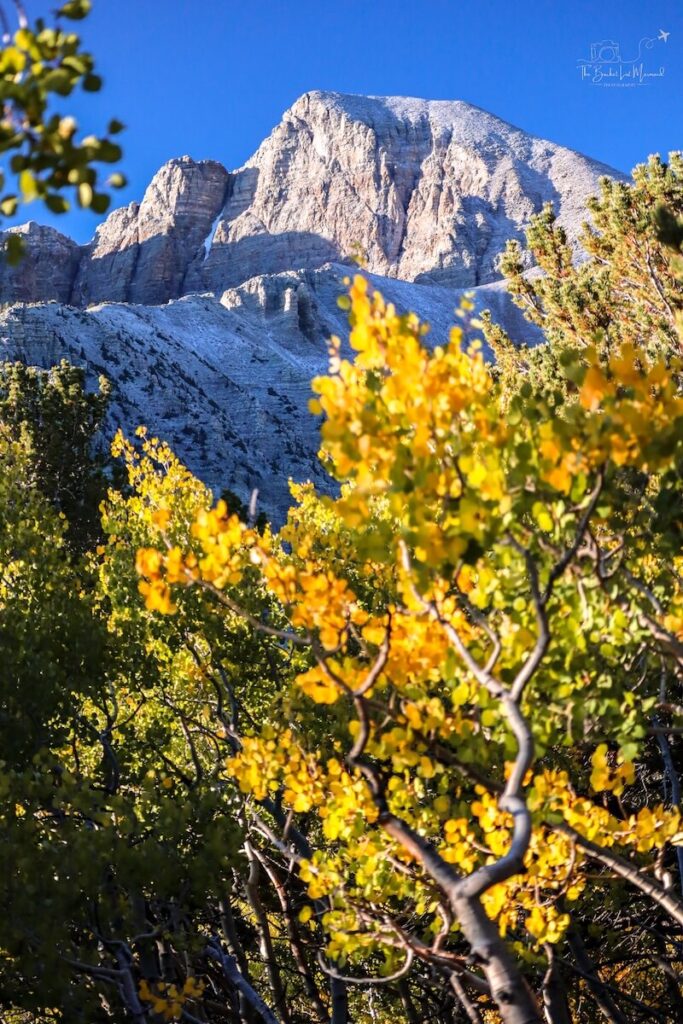
How to Get There (and What RVers Should Know)
Nearest Town
Baker, Nevada (tiny but mighty – think: gas, food, and a quirky inn)
Closest Airport
Ely, NV (1.5 hours) or Cedar City, UT (3 hours). Most folks drive in from Salt Lake City (~4 hours).
RV Tips
There are no hookups inside the park, but smaller RVs are allowed in all campgrounds except the Grey Cliffs Campground.
Where to Stay Near Great Basin National Park
Whether you’re rolling in with your RV, pitching a tent, or craving a cozy bed after a day of exploration, there are lodging options to suit every adventurer’s needs.
In-Park Campgrounds
Great Basin National Park offers six campgrounds, each providing unique experiences:
- Wheeler Peak Campground: Located at almost 10,000 feet, this campground offers 37 sites suitable for tents and RVs. It’s a prime spot for access to high alpine trails and the Wheeler Peak Scenic Drive.
- Baker Creek Campground: This campground has 37 sites nestled among pinyon and juniper trees, offering a tranquil setting near the park’s eastern entrance.
- Upper Lehman Creek Campground: At 7,500 feet, this campground features 23 sites about 3 miles up Wheeler Peak Scenic Drive. This is perfect if you want to tackle those high alpine trails.
- Lower Lehman Creek Campground: This campground offers 9 sites in the red-barked water birch, aspen and white fir.
- Grey Cliffs Campground: This simple campground offers 16 sites is suitable for groups and offers a more rustic experience with vault toilets but no potable water. It does not allow RVs.
- Snake Creek Campgrounds: This campground with 12 sites is right along the Snake Creek River. It is set in aspen groves and at the base of the limestone cliffs.
Nearby Lodging Options
For those preferring a roof over their heads, consider these accommodations:
- Border Inn & RV Park: Located about 12 miles from the park, this inn offers motel rooms, RV sites, and a casino, providing a convenient base for park visitors. This is where I stayed and you can find my full review 👉 here.
- Hidden Canyon Retreat: A peaceful retreat featuring comfortable rooms and access to hiking trails, situated approximately 11 miles from the park.
- Whispering Elms Motel, Campground, & RV Park: Situated 5 miles from the park, this establishment offers motel rooms, RV sites, and a restaurant, making it a versatile option for travelers.
- Stargazer Inn: A charming roadside motel offering cozy rooms and a general store, located just steps from the park entrance.
For the true backcountry experience
- Sacramento Pass BLM Campground: Approximately 10 miles from the park, this first-come, first-served campground offers picnic tables, fire rings, and pit toilets, with no water available.
- Gravel Pit BLM Dispersed Campsite: Located near the park, this dispersed camping area provides a more rudamentary experience with basic amenities.
Towns to Consider
Baker, NV: The closest town to the park, offering basic services, accommodations, and dining options.
Ely, NV: Located about 55 miles from the park, Ely provides a wider range of accommodations, restaurants, and services.
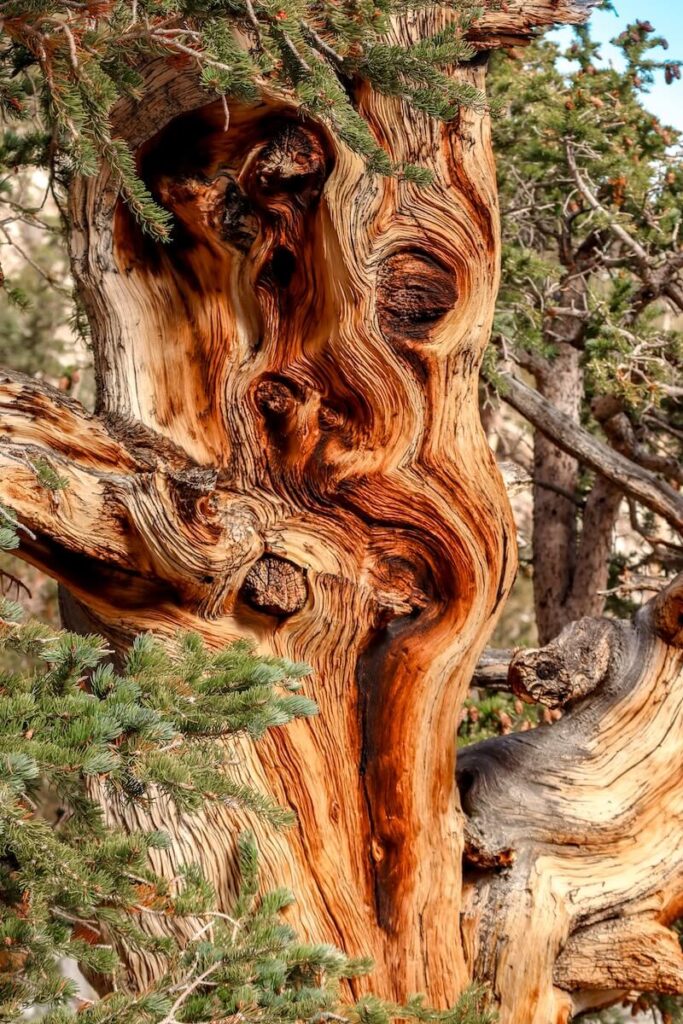
Entry Fees & Hours at Great Basin National Park
Entrance Fees
Great Basin National Park does not charge an entrance fee. Visitors can enjoy hiking, stargazing, and exploring the park without any cost.
Operating Hours
- Park Grounds: Open 24 hours a day, year-round, allowing for activities like hiking and stargazing at any time.
- Visitor Centers:
- Lehman Caves Visitor Center: Open year-round with extended hours during the summer months.
- Great Basin Visitor Center (in Baker): Typically closes during the winter months.
Note: Operating hours for visitor centers may vary seasonally. It’s advisable to check the official NPS website for the most current information before your visit.
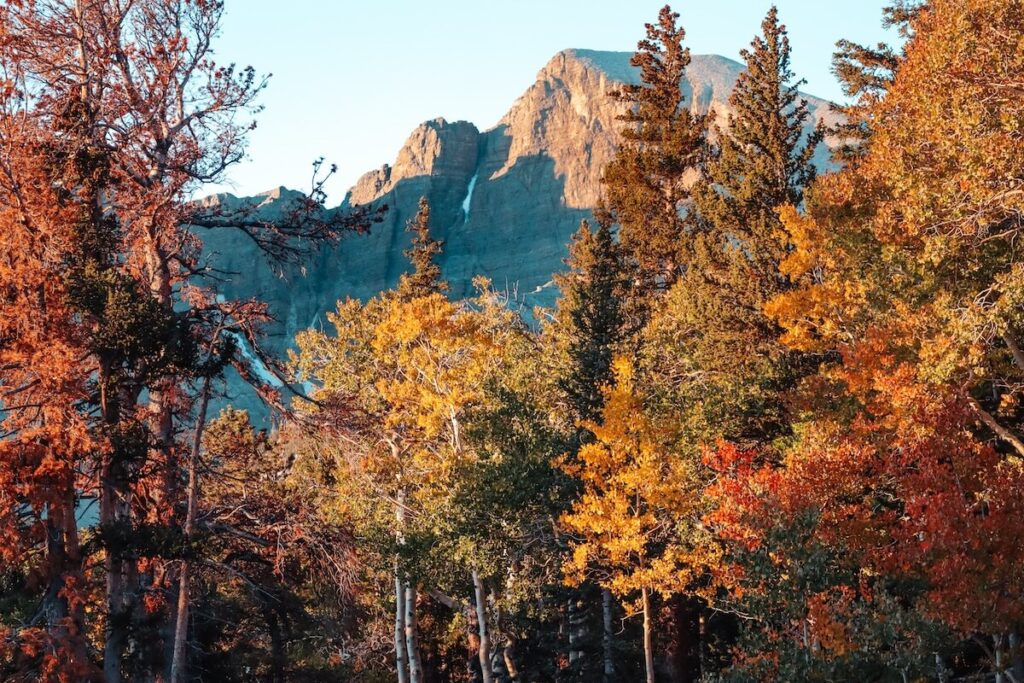
Top Things to Do in Great Basin National Park
So, what exactly is there to do in this remote slice of Nevada wilderness? Turns out – a ton.
Ready to dive in? Here’s the ultimate guide to the top things to do in Great Basin National Park:
Explore Lehman Caves
If Great Basin had a crown jewel, it would be Lehman Caves.
This massive marble cave system stretches over two miles beneath the surface – and no, you can’t explore it solo (thankfully, or we’d all be lost in a fairyland of stalactites forever).
What to Expect on the Tour
- You can only access the caves via ranger-guided tours.
- Tours range from 30 to 60 minutes and cover different sections of the cave (the “Grand Palace” tour is a fan favorite).
- The path is paved, but the lighting is low, and the air is cool and damp—perfect for cave ambience and escaping summer heat.
Note: I was so shocked at how fast this is sold out. For an “under the radar” national park and even in off season, we barely snuck in!
If you are going to the Lehman Caves, get your tickets as early as you can!
Cool Formations to Watch For
- Shields: Rare, disk-shaped formations unique to these caves.
- Stalactites & Stalagmites: Nature’s classic drip architecture.
- Soda Straws & Draperies: Delicate, glassy formations that look like icicles and curtains.
Pro Tips
- Book in advance on the website – tours fill up fast, especially in summer.
- Bring a light jacket (it’s around 50°F year-round in the caves).
- Photography? Flash is allowed (unless otherwise stated), but low light = slow shutter = blur. Steady your camera or bring a tripod if you’re on the 90-minute tour and they allow it.
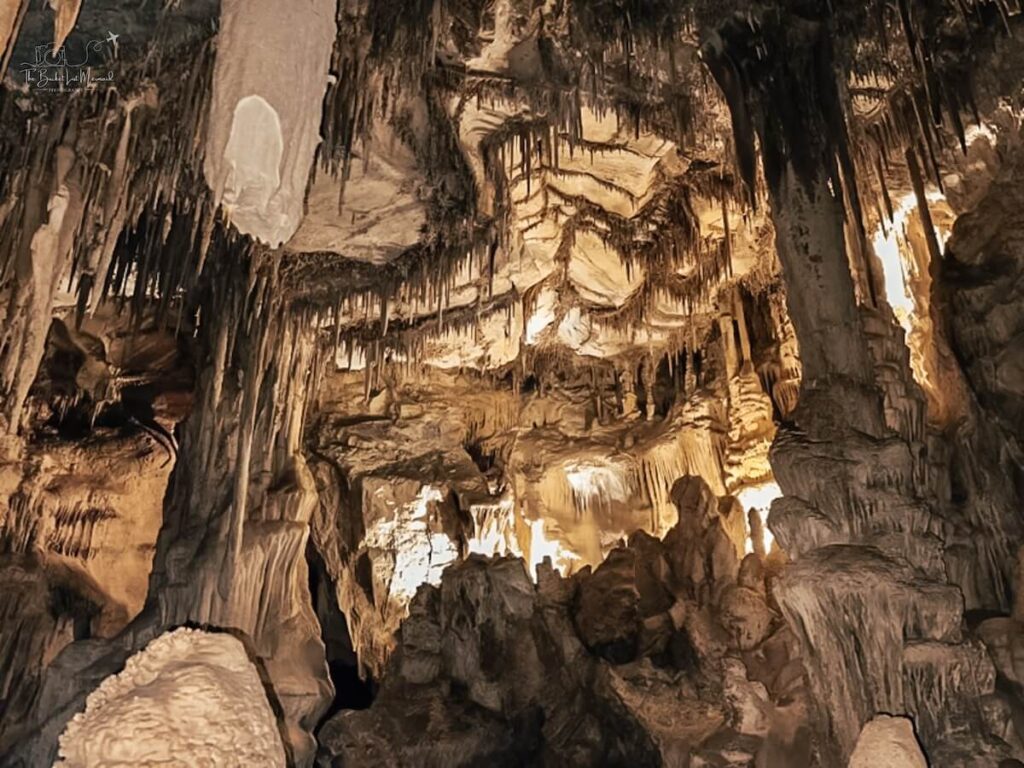
Hike to the Bristlecone Pine Grove
Imagine hiking through a forest where the trees are older than the Roman Empire. That’s what you get with the Bristlecone Pine Trail.
These gnarly, windblown survivors can be over 5,000 years old. They’ve literally seen more history than we’ve written books about.
| Type | Out & Back |
| Total Length | 2.8 miles (4.5 km) |
| Elevation Gain | 600 feet (183 m) |
| Difficulty | Moderate |
| Estimated Time | 1.5 to 3 hours |
| Pets Allowed | No |
| Reservations Required | No |
Highlights
- Interpretive signs that teach you about the trees and alpine ecology
- Unreal views of Wheeler Peak and surrounding ranges
- Optional: Continue on the Glacier Trail (adds 1.2 miles round trip) to see Nevada’s only glacier. Yep, a glacier. In the desert. Nature’s full of surprises.
When I hiked this, I did the entire Alpine Lakes Loop, the Bristlecone Pine Trail with the Glacier Trail. I ended at about 10.17 miles.
Don’t let the miles fool you! It was an easy slope and completely doable!
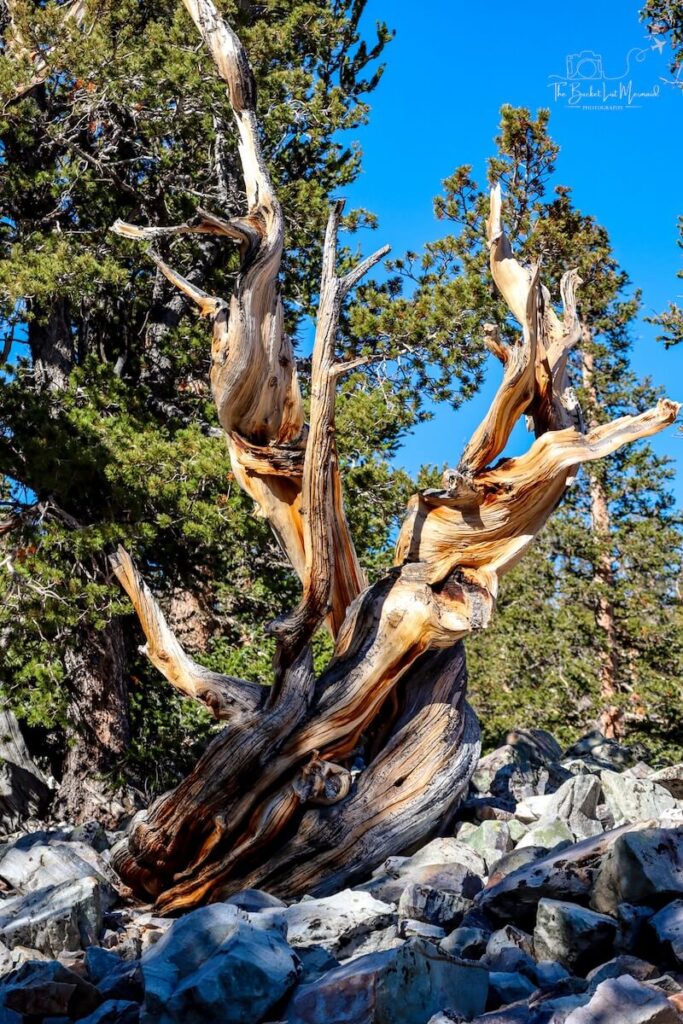
Summit Wheeler Peak
Calling all altitude junkies and highpoint chasers – Wheeler Peak is your big challenge.
At 13,063 feet, it’s the second-highest peak in Nevada and offers truly jaw-dropping views if you’re up for the climb.
| Type | Out & Back |
| Total Length | 8.5 miles (14 km) |
| Elevation Gain | 3,100 feet (945 m) |
| Difficulty | Strenuous |
| Estimated Time | 4 to 10 hours |
| Pets Allowed | No |
| Reservations Required | No |
Trail Stats
- Distance: 8.6 miles round trip
- Elevation Gain: 3,000+ feet
- Difficulty: Strenuous
- Trailhead: Wheeler Peak Campground
Who It’s For
- Fit, acclimated hikers (this is not your warm-up trail)
- Those who love a lung-burning payoff
- Sunrise or early morning hikers to beat the afternoon storms
Things to Keep in Mind
- Start early: Afternoon thunderstorms are no joke.
- Watch for altitude sickness if you’re not used to high elevations.
- Bring plenty of water, layers, and sun protection – this is high alpine, baby.
Go On An Audio Tour
If you are driving around Great Basin National Park, I would consider getting a self guided audio tour. I’ve done these tours in Arches, Canyonlands, Great Basin, Yosemite, Zion, and Bryce and loved all of them!
It is a super chill and cheap way to explore at your own pace as well as learn about the history! Plus, it’s a great way not to miss anything.
Stargazing & Astronomy Programs
This is not your average starry night.
Great Basin National Park is one of the darkest places in the continental U.S., which means the stargazing is next level.
On a clear night, the Milky Way stretches overhead like a galactic superhighway.
Why It’s Special
- It’s a Gold Tier International Dark Sky Park, officially recognized for having almost zero light pollution.
- You can see planets, nebulae, satellites, and thousands of stars with the naked eye.
Best Stargazing Spots
- Mather Overlook: Epic sky and mountain views
- Baker Archaeological Site: Wide-open vistas just outside the park
- Fun story… I was chatting to the grocery clerk in Baker and ended up doing a sunrise/stargazing sound back at the archeological site!
- Anywhere in Upper Lehman Campground or Baker Creek Road
Don’t Miss:
- Ranger-led astronomy programs (check schedule at the visitor center)
- I did one of these during a new moon and it was EPIC!
- Full moon hikes and annual astronomy festivals if your trip lines up.
Drive the Wheeler Peak Scenic Drive
This 12-mile paved road climbs from the desert floor to over 10,000 feet, offering breathtaking variety in terrain and views.
It’s one of the most dramatic elevation gains you can drive in such a short distance – and it’s packed with photo ops.
Must-Stop Viewpoints
- Mather Overlook (sunrise stunner)
- Bristlecone Trailhead & Wheeler Peak Overlook
- Teresa Lake Trail (short and sweet alpine hike)
Wildlife You Might Spot
Marmots, deer, mountain lions (rare), and even bighorn sheep.
Seasonal Note
The road is closed in winter and usually opens in late May to early June. Check conditions before you go!
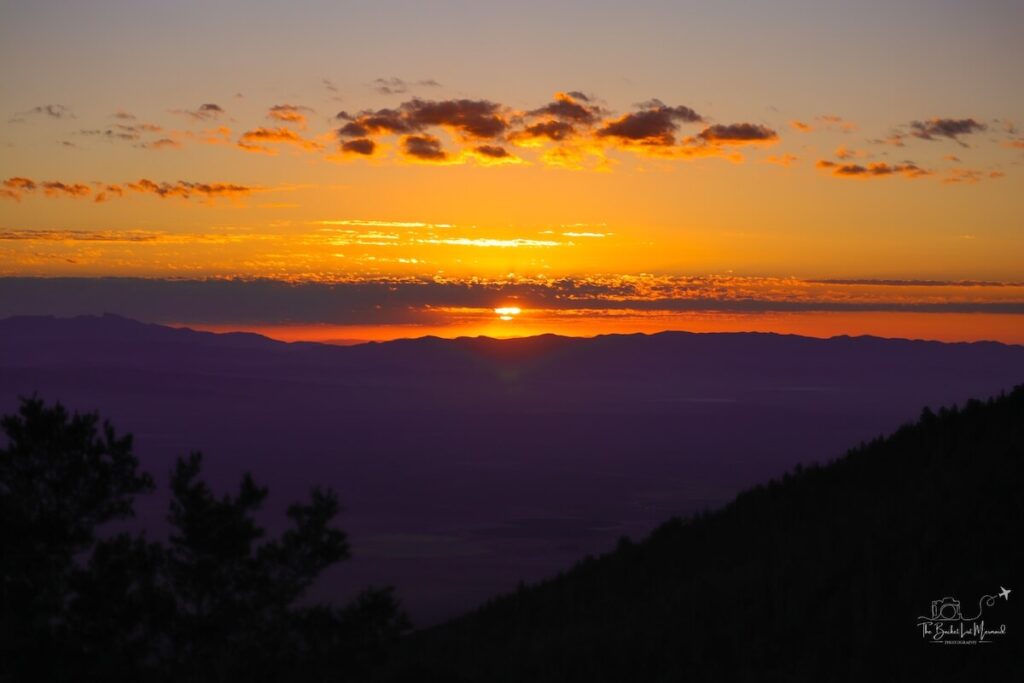
Check Out Lexington Arch (Optional Adventure)
Want to really go off the beaten path? Lexington Arch is a massive, six-story limestone arch.
It’s rugged, remote, and totally worth it if you’re into wild hikes.
| Type | Out & Back |
| Total Length | 5.2 miles (8.4 km) |
| Elevation Gain | 1,263 feet (385 m) |
| Difficulty | Moderate |
| Estimated Time | 2 to 3 hours |
| Pets Allowed | No |
| Reservations Required | No |
Why It’s Worth It
- Giant natural arch without the crowds of Arches NP
- Epic views of the surrounding mountains and canyons
- You’ll probably have the trail all to yourself
Wildlife Watching Tips in Great Basin National Park
Great Basin isn’t just about stunning landscapes—it’s also a quiet sanctuary for a fascinating mix of wildlife.
Here’s how to spot these elusive creatures and have a respectful, memorable encounter:
What Wildlife You Can Expect to See
- Mule Deer: These graceful browsers are often seen at dawn and dusk in meadows and forest edges.
- Mountain Lions: Masters of stealth, they’re rarely spotted but roam the park’s rugged terrain. Keep your distance and stay aware.
- Bats: Inside Lehman Caves and at dusk outside, several bat species emerge for their nightly insect hunt—watch quietly and respectfully.
- Rabbits & Marmots: Look for these charming alpine rodents scurrying among the rocks at higher elevations.
- Coyotes: Often heard more than seen, coyotes patrol the park’s open areas—best spotted early morning or evening.
- Snakes: Not common but present, keep an eye out on warm rocky slopes and stay safe by giving snakes plenty of space. Watch out for rattlesnakes!
You can learn more about all of the mammals, snakes & lizards, and birds here.
Best Times & Spots for Wildlife Viewing
Early Morning & Late Evening: Wildlife is most active during the cool, quiet hours just before sunrise and after sunset—perfect times to catch a glimpse without crowds.
Meadows & Water Sources: Areas like the Baker Creek and Lehman Creek meadows attract animals seeking water and forage – bring binoculars and keep your distance.
Quiet Hiking Trails: Trails like the Bristlecone Pine Trail and Wheeler Peak Summit offer chances to spot alpine critters in their natural habitat. Move slowly, speak softly, and wear neutral colors.
Avoid Disturbing Wildlife: Use binoculars or zoom lenses for photos instead of approaching. Never feed animals – they’re wild, not pets.
Respect Seasonal Behavior: Some species are more sensitive during breeding or birthing seasons, so keep noise low and stay on designated trails.
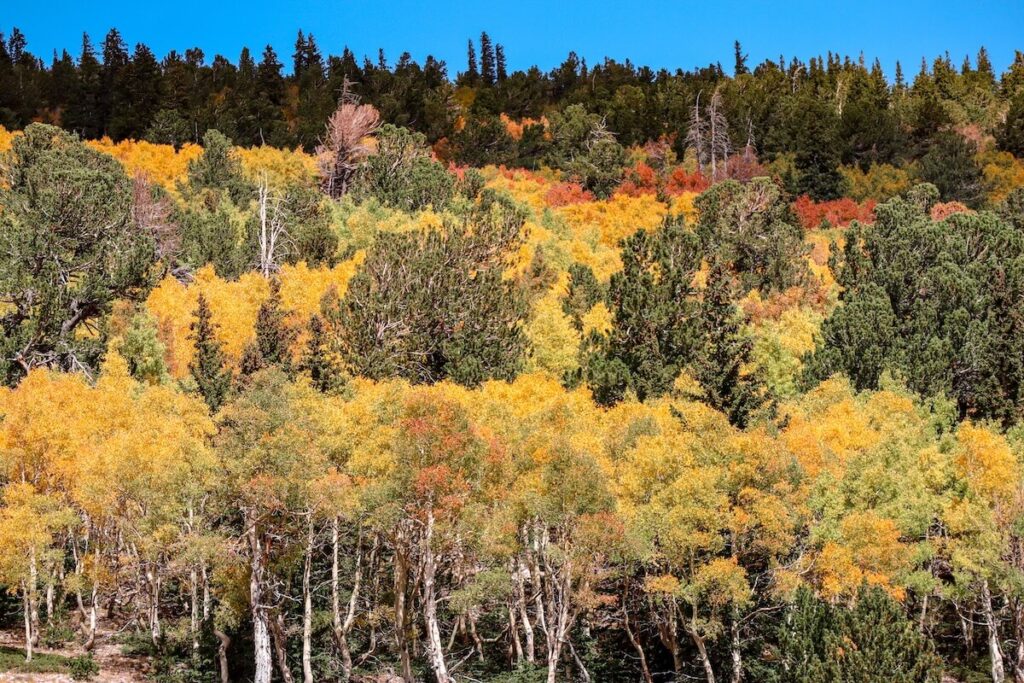
Gear & Packing Checklist for Great Basin National Park
Hiking Gear Essentials
- Footwear: Sturdy, broken-in hiking boots or trail shoes with good traction—trails can be rocky, steep, and uneven.
- Backpack: A comfortable daypack with room for water, snacks, layers, and camera gear.
- Water: At least 2-3 liters per person, more if hiking longer routes or in warmer months. Hydration packs work great here.
- Sun Protection: Wide-brimmed hat, sunglasses, and broad-spectrum sunscreen—high elevation means stronger UV rays.
- Navigation: Physical trail maps or downloaded GPS apps like AllTrails (offline mode) since cell service can be spotty.
Stargazing & Night Photography Must-Haves
- Tripod: A sturdy tripod is a game-changer for capturing sharp Milky Way and star trail shots.
- Headlamp: A red-light headlamp preserves your night vision and frees up your hands for camera adjustments or walking.
- Warm Layers: Night temps drop drastically, so pack an insulated jacket, hat, and gloves even in summer.
- Extra Batteries: Cold weather drains batteries faster, so bring spares for cameras and headlamps.
Cave Tour Prep
- Footwear: Waterproof or quick-drying shoes with good grip—Lehman Caves can be damp and slick.
- Clothing: Bring a light jacket or long sleeves; cave temps stay a cool, steady ~50°F (10°C) year-round.
- Camera: Photography is not allowed inside Lehman Caves, but keep your camera ready for outside shots.
- Reservations: Book cave tours well in advance to guarantee a spot – especially in peak seasons.
Weather & Layering Tips
Great Basin’s elevation ranges from about 5,000 to over 13,000 feet, meaning rapid and extreme weather shifts:
- Base Layer: Moisture-wicking materials to keep sweat off your skin.
- Insulating Layer: Fleece or lightweight down jacket for warmth.
- Shell Layer: Waterproof, windproof jacket to shield against rain or snow.
- Accessories: Gloves, hat, and neck gaiter for chilly mornings or evenings.
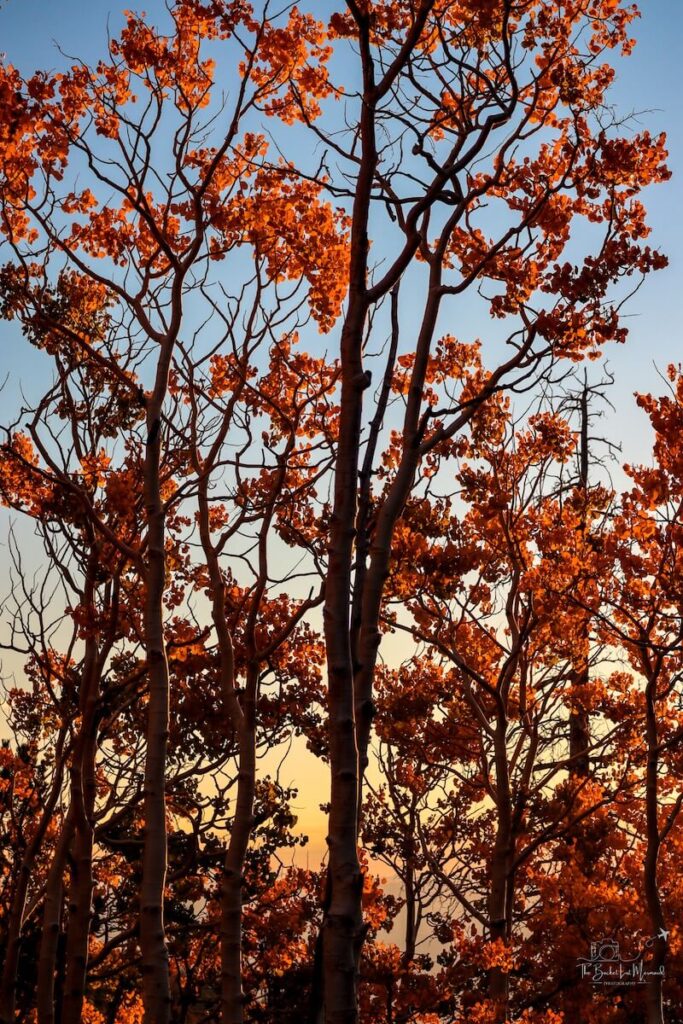
Safety Tips for Great Basin National Park
High elevation + rugged terrain + unpredictable weather = respect the mountain.
Altitude: Take it slow the first day, especially if you’re coming from sea level. Watch for headaches, dizziness, or nausea. If symptoms worsen, descend to lower elevations immediately.
Stay hydrated: Water is your best friend. Drink often—even if you don’t feel thirsty.
Weather: Afternoon thunderstorms are common in summer. Start hikes early, check the forecast, and always have a plan to descend quickly if you see storm clouds.
Wildlife: Keep your distance from animals, and never feed them. Carry bear spray if you’re hiking in more remote areas (though bears are rare here).
Cell Service & Offline Map Advice
Don’t count on your phone to save you here.
- Cell service: Patchy to nonexistent inside the park – especially in Wheeler Peak and cave areas.
- Offline maps: Download detailed maps ahead of time. Apps like Gaia GPS, AllTrails, or National Park Service’s official app work great offline.
- Paper maps: Old school, but reliable – grab one at the visitor center or print from the NPS website before you go.
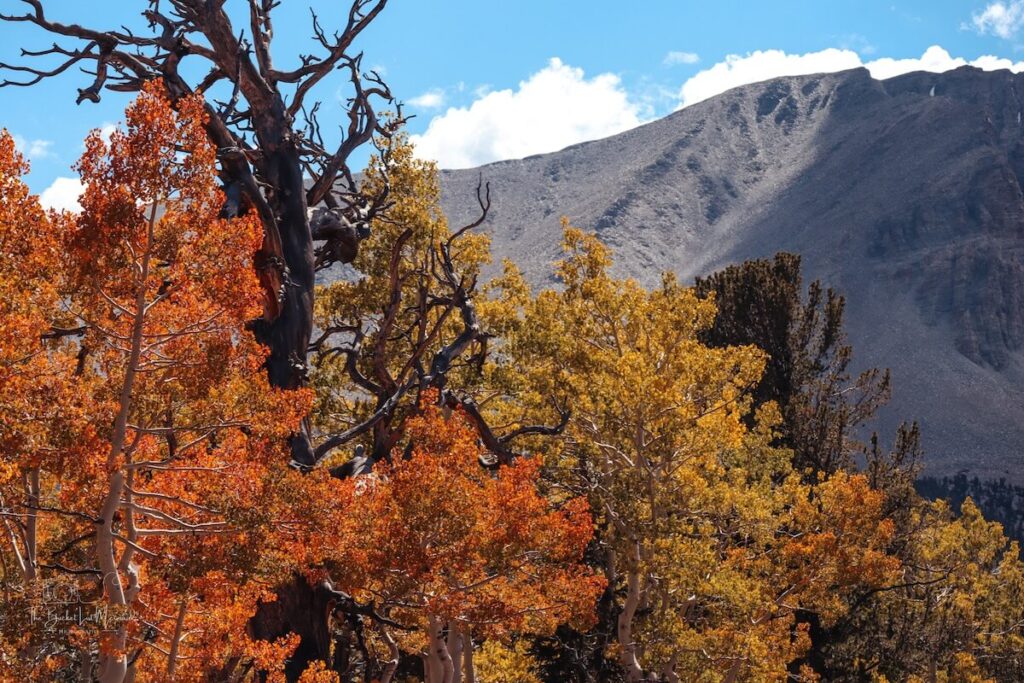
Nearby Bonus Adventures
If you’re already rolling through Great Basin National Park, why not squeeze in some extra local flavor?
These nearby spots add quirky charm, extra adventure, and a taste of small-town Nevada life that’ll make your trip unforgettable.
Great Basin Observatory
Astronomy buffs, heads up! Just a short drive from the park, the Great Basin Observatory is an awesome stop for anyone obsessed with the stars.
The observatory sometimes offers tours during the Great Basin Astronomy Festival.
- Check availability: Tours aren’t daily and often require advance booking during a certain time, so check their official website or call ahead.
- Why go? Get a closer look at the high-tech telescopes scanning the universe, plus expert insight into the constellations overhead.
Border Inn (Quirky Road Stop!)
Want a slice of roadside Americana? The Border Inn in Baker, NV is your spot. This iconic diner-style joint serves up classic comfort food with a side of kitschy charm.
I stayed here in my RV and loved it!
- Try: The burgers, homemade pies, and the coldest drinks after a day of hiking. I would die for another one of their quesodillas.
- Vibe: Friendly locals, dusty boots, and that classic “I’m on an adventure” energy. It’s the perfect refuel stop.
Border Inn Review for RVs
If you are curious about visiting an inn that’s between two states (literally!), check out my full review and guide.
Hidden Gems Around Baker, Nevada
Beyond the park’s official boundaries, Baker and its surroundings offer some lesser-known natural and cultural treats:
- Baker Archaeological Site: Just outside the park, this spot offers a glimpse into Native American history with petroglyphs and ruins – perfect for history buffs who want a break from trails.
- Nevada Northern Railway Museum: If you have a few hours to spare and love trains, this museum in Ely (about 1.5 hours away) offers historic steam and diesel train rides. A bit of a drive but a total time-travel experience.
- Local hot springs: For those who want to unwind, nearby natural hot springs are scattered around the region. My favorite was a local secret that was about an hour away in Utah called the Gandy Hot Springs.
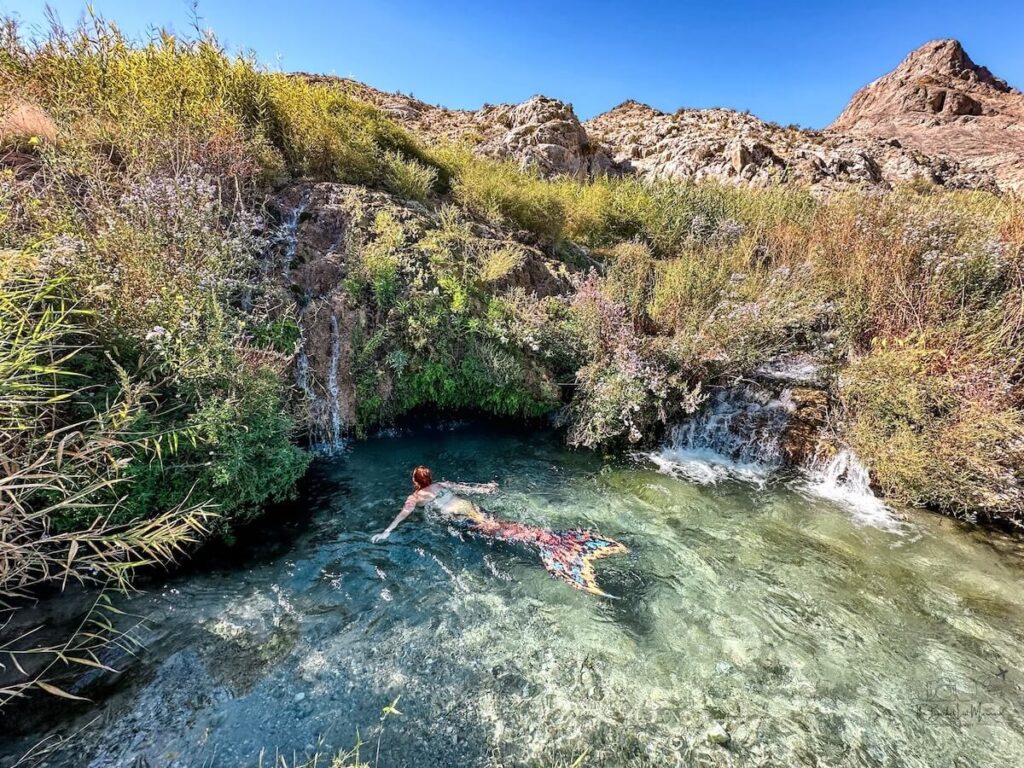
FAQs About Great Basin National Park
Commonly asked questions about Great Basin National Park.
Conclusion on This Great Basin National Park Bucket List
Great Basin National Park might not be the flashiest or most famous, but that’s exactly why it’s a bucket list must – untouched beauty, epic adventures, and peaceful solitude that few other parks can offer.
As a full-time RVer and adventure junkie, I can tell you firsthand: Great Basin delivers big on unique experiences without the crowds or chaos.
So pack smart, plan ahead, and get ready to check some seriously cool adventures off your Great Basin National Park bucket list.
Ready to start planning? Dive into those trails, book your cave tour, and don’t forget to look up—because the night sky here will blow your mind.
More Travel Resources
Adventure Bucket List Resources
I am here to help your travel adventures go as smoothly as possible! That way you can check off that bucket list with minimal complications and spending!
SHOP – Shop the best adventure gear and essentials on my Amazon Storefront – handpicked by a full-time adventuring mermaid!
AIRFARE – There are a few I use, but Aviasales is normally my go-to for flights without any extra fees or markups.
ACCOMMODATION – My two favorites are Booking.Com for hotels and VRBO for rentals.
GUIDED TOURS – If you are looking for quick and easy tours, check out GetYourGuide and Viator.
MULTI-DAY TOURS – For more in-depth tours that span several days, TourHub has many great options with reputable travel companies. Use my code (ALEXANDRA1GURU) for up to 5% off your next bucket list adventure.
TRANSPORTATION – You can either rent a car yourself with Discover Cars or do a guided bus tours like Big Bus Tours.
SIM CARDS – Avoid expensive roaming charges with an eSim card with Airalo. Personally, I prefer wifi boxes, and recommend WiFi Candy (get 10% of with the code THEBUCKETLISTMERMAID).
TRAVELER’S INSURANCE – Check out VisitorsCoverage for affordable insurance plans. If you are a nomad or remote worker, I would check out SafetyWing.
SEE MORE – Adventure Resources | Photography Resources
See Some Photos You Like?
Check out my full photography page for a full gallery and prices.

